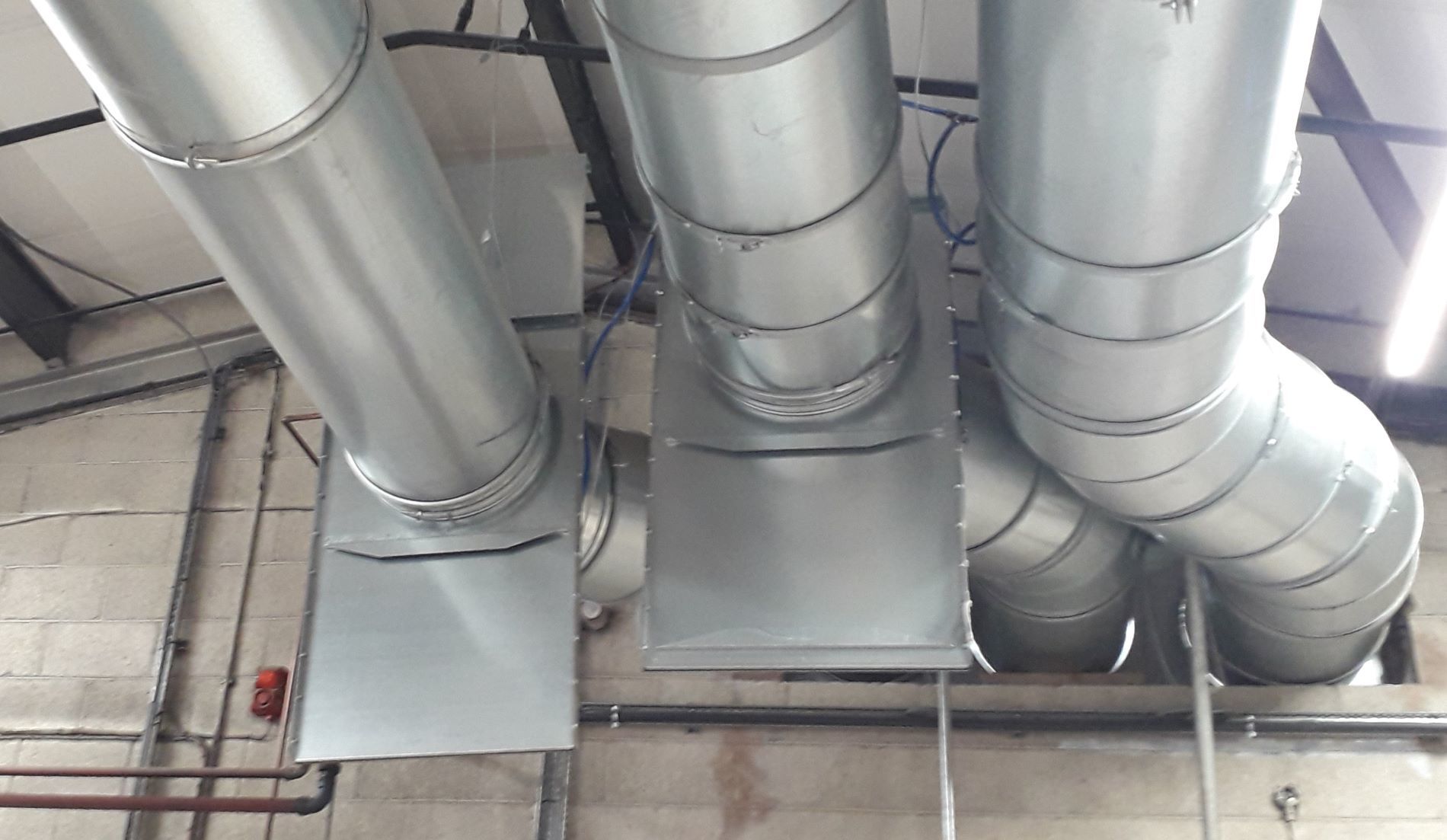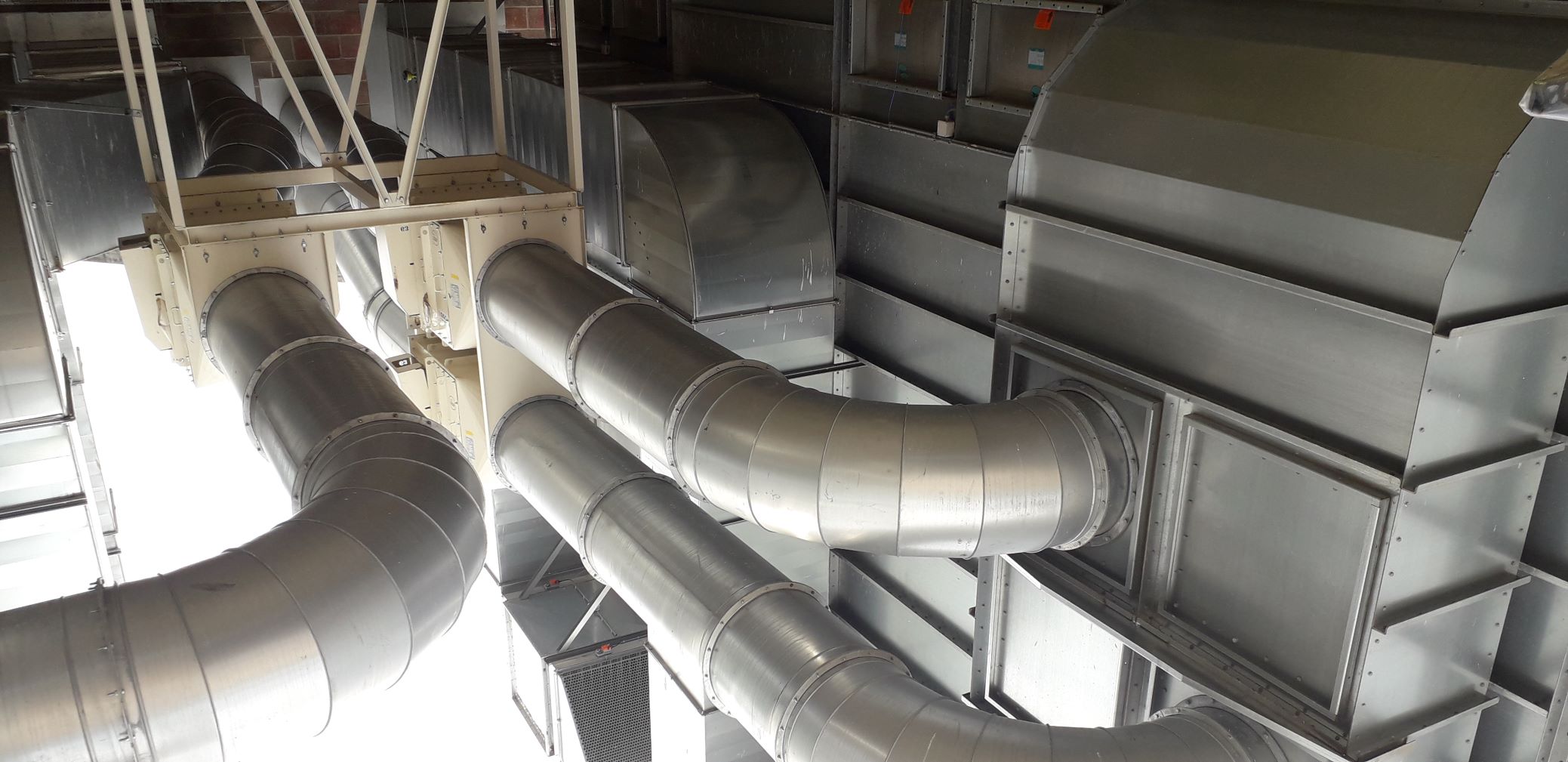At JELD-WEN, we’re continually streamlining our processes and investing in new technologies to become a safer, more sustainable business
JELD-WEN clears the air
We have long known clean air is essential to good health, a fact underscored by decades of research. It’s one of the reasons why JELD-WEN installed a new extraction system in its Penrith, U.K., plant in December 2020. As well as ensuring associates’ health and safety, the new system furthers JELD-WEN’s goals to use energy more efficiently in its products, its plants and beyond.
Why focus on ventilation?
The Penrith plant produces up to 50,000 internal and external doors each week. Each is produced 10mm longer and wider than the desired final measurements, then trimmed to size, creating sawdust – and a potential health problem. Nothing is more important to JELD-WEN than the safety and wellbeing of its associates, so the use of masks and other filtration devices is embedded in company culture to avoid the prolonged exposure of workers to the tiny, airborne particles of wood dust associated with respiratory symptoms and certain cancers. Additionally, fine sawdust is flammable, so it presents a safety hazard.
As a responsible employer valued for our standards of excellence, JELD-WEN wanted to put in a new, more powerful, extraction system, but without producing more carbon emissions from using extra energy to run it.
 “Dust collection is among the largest sources of energy consumption in wood-product manufacturing,” says Hamish White, manager of the Penrith plant. “Our old system accounted for 40 percent of the plant’s energy use.”
“Dust collection is among the largest sources of energy consumption in wood-product manufacturing,” says Hamish White, manager of the Penrith plant. “Our old system accounted for 40 percent of the plant’s energy use.”To lower the plant’s overall energy use, JELD-WEN installed a system at the Penrith plant that only powers up when it needs to: nine main ducts directly link to power settings on the plant’s machinery, so extraction takes place only when the machines are in use.
Each duct carries wood particles to two large filtration units, which collect the dust in a massive silo. Newly cleaned, the air is then recirculated or vented out of the factory.
Lower energy use, fewer carbon emissions
“Despite a record-high door production volume in 2021,” says Hamish, “the new filtration system helped lower the plant’s overall power use by 12 percent between 2019 and 2021.”

Additionally, the waste sawdust is put to good use. It fuels two biomass boilers that provide heat for the buildings and the door production process – enhancing the plant’s energy self-sufficiency.
The savings are significant: the amount of power needed to manufacture each door is down 19 percent, saving 20 metric tons of carbon dioxide equivalent (CO2-e) emissions every month. A win for peoples’ health, and the planet.You can read more about JELD-WEN's commitment to sustainability in the 2022 ESG report.
